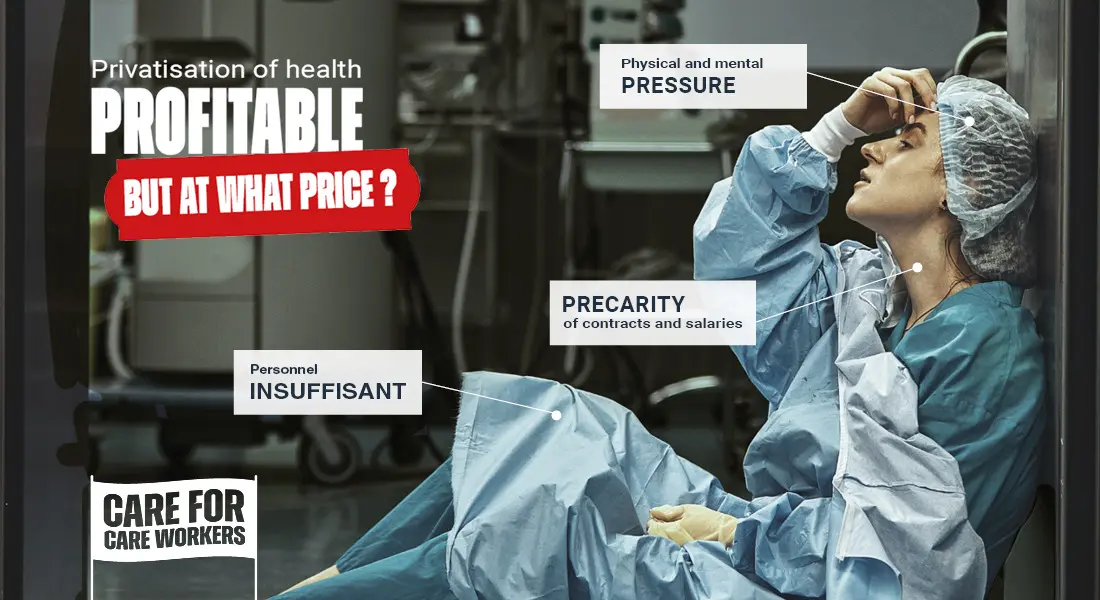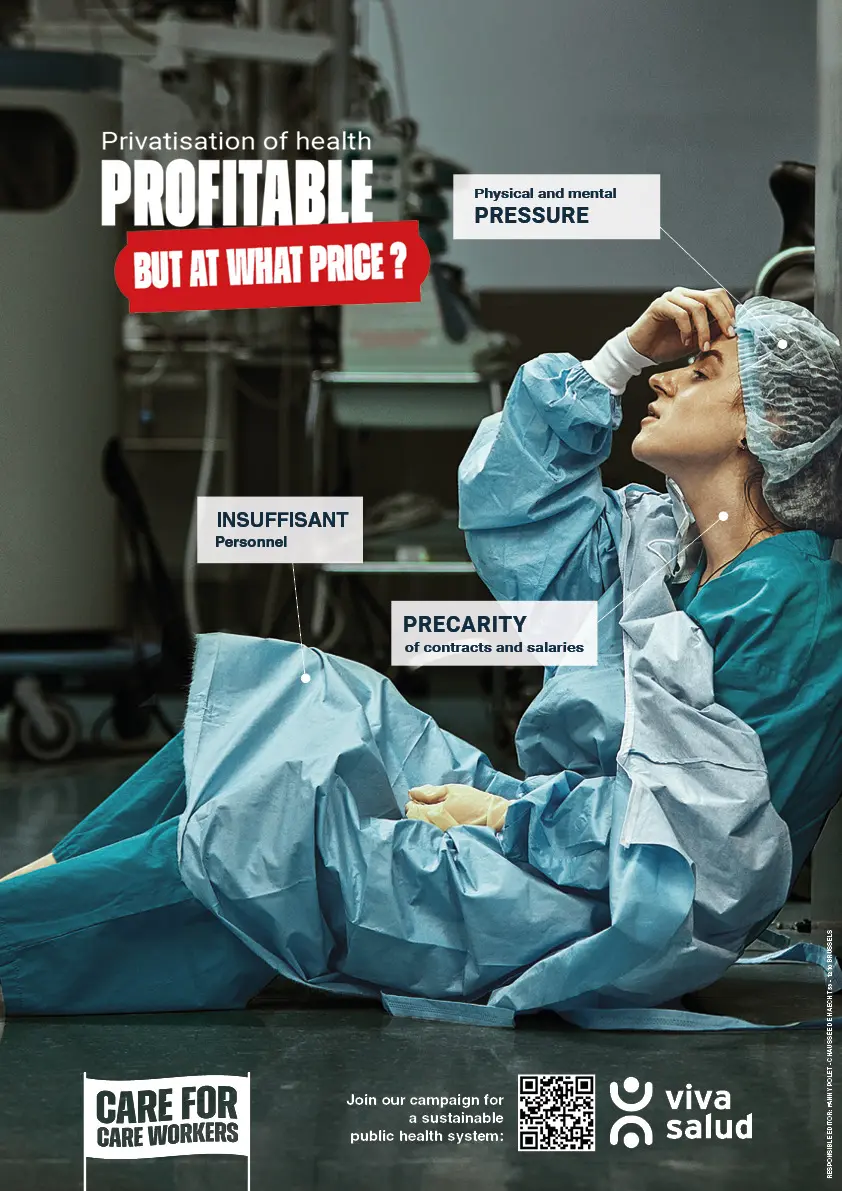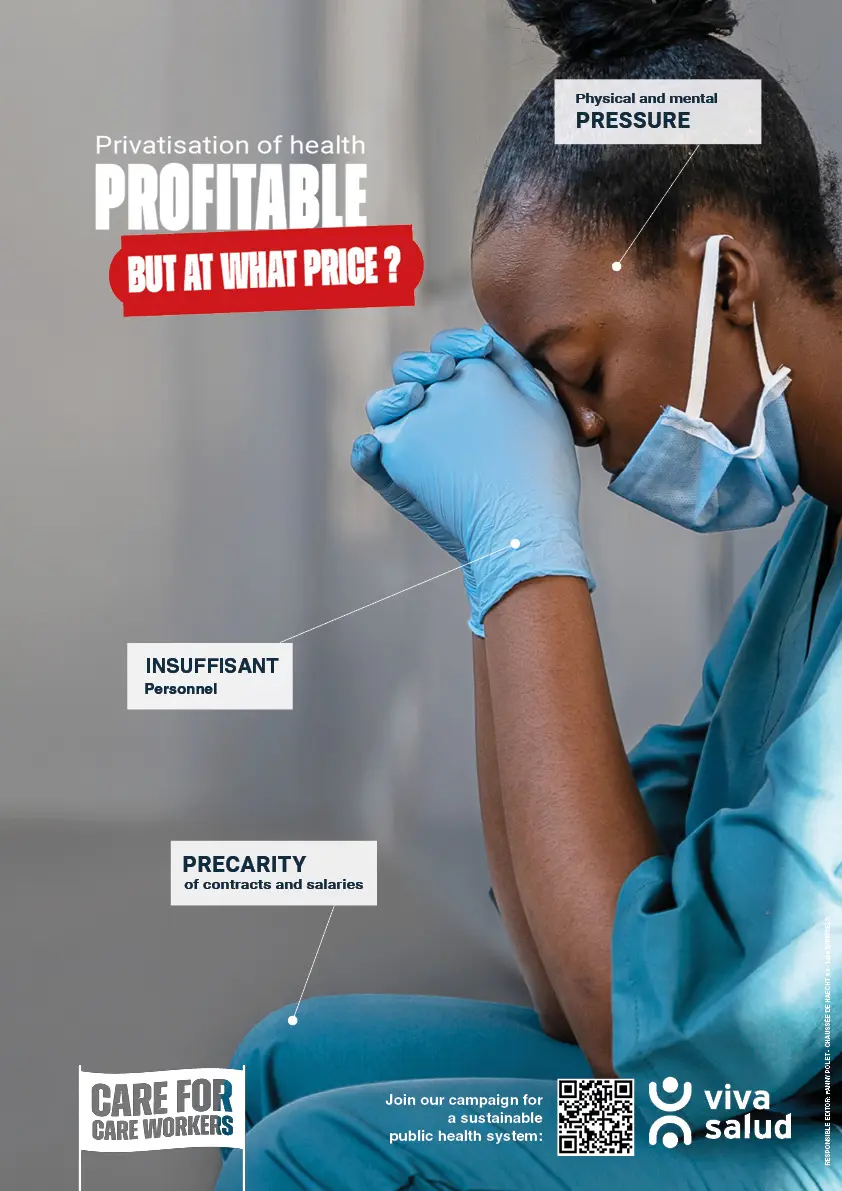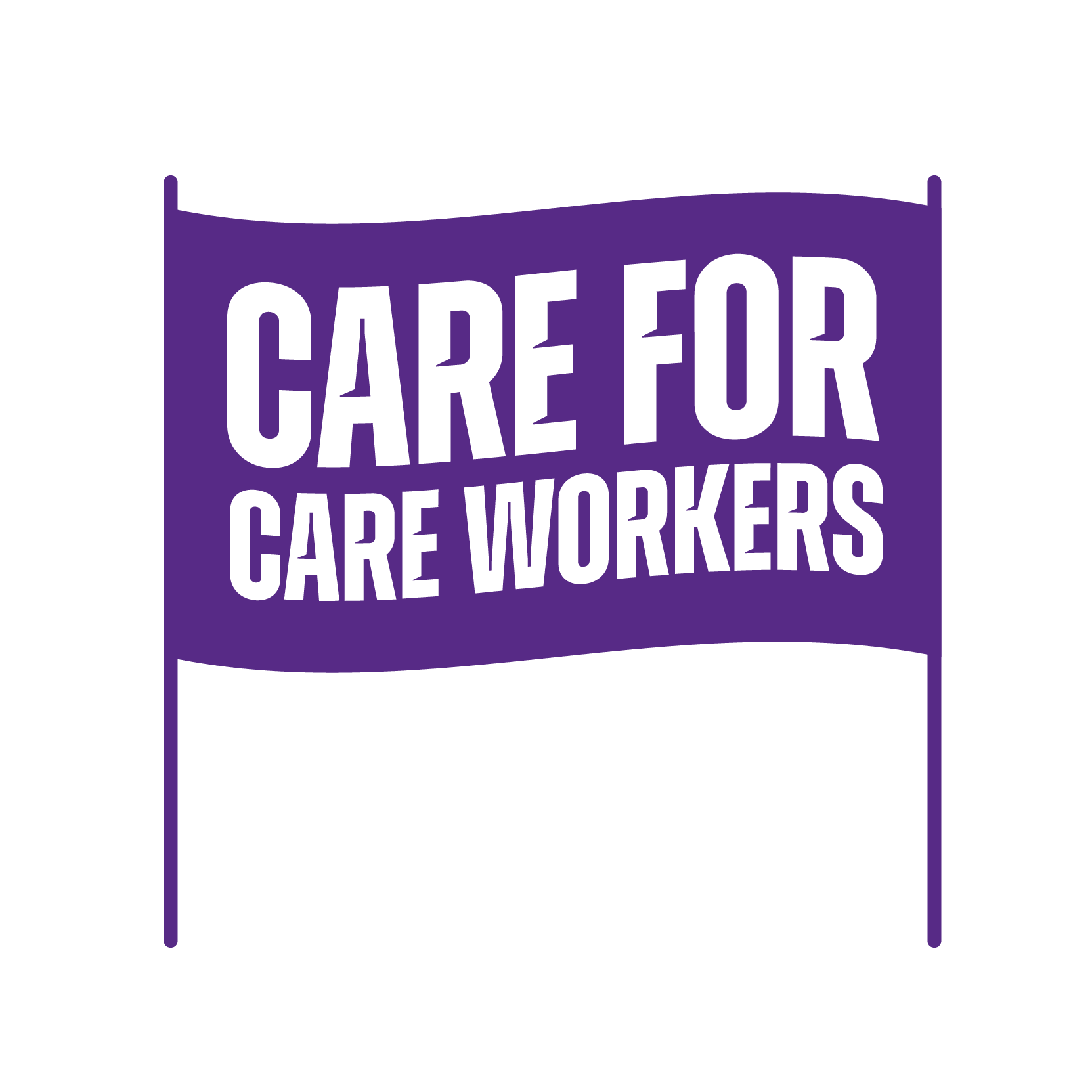
Commercial players in the healthcare sector prevented an effective response to the COVID-19 pandemic. At the same time, governments have continued to dismantle public health services. The private sector is playing an increasing role in healthcare. How can this be explained?
| WHAT ARE WE TALKING ABOUT? In health care, privatisation and commercialization come in all kinds of shapes and sizes. Health care is essentially becoming commercialized, allowing for profits to be made. Commercialization involves market logic and commercial principles that are then applied to public policy as well as to the actors in the sector. Under privatisation, health services, health policy and the production of health products are funded and implemented by private actors for profit. In this brief, the term “private sector” refers to all types of private for-profit actors. |
The role of international financial institutions
In most low-income countries, the World Bank (WB) and the International Monetary Fund (IMF) are the drivers of health sector privatisation. During the 1980s, they imposed crippling borrowing conditions with their infamous structural adjustment programs. In many countries, the public health sector was on the verge of collapse. Governments were forced to open up their health sectors to foreign investment and make drastic cuts.

The cap on public sector salary expenditures has resulted in underpayment and de-motivation of health care workers. Patients suddenly had to pay more for care, resulting in high health care costs for families. Research shows the negative impact of WB and IMF policies on public health. Yet these institutions stick to their usual roadmap.
“Prior to the pandemic, 57 countries had severe health workforce shortages, according to the WHO. Yet the IMF advised 24 of those 57 countries to freeze or even reduce public sector wage spending.”
Jasper Thys, Viva Salud political and campaign collaborator
The role of our economic system
Our global economic system is unfair: rogue trade rules, tax evasion, suffocating borrowing requirements, decades of debt repayments, and failed international financial policies all prevent most governments from raising revenue. This prevents low-income countries from investing in public health care and the health workforce.
The Jubilee Debt campaign showed last year that 64 low-income countries spend more on repaying their foreign creditors than they do on health care. In addition, spending on global debt repayments is increasing year after year. They are getting in the way of needed investments in public services. The former colonies have been caught in an economic system that benefits a small group of people and leaves the majority of the population living in inhumane conditions.
| Worldwide, countries lose more than $427 billion each year to tax evasion. This amount would pay the salaries of 34 million nurses each year |
The role of philanthropy
In the 1980s, international institutions, created after World War II to serve the public interest, began to form partnerships with philanthropists. Since then, the charitable initiatives of the world elite have increasingly defined the international agenda in terms of health. The Bill and Melinda Gates Foundation, for example, is the second largest donor to the WHO, with governments contributing less and less. These philanthropists decide themselves how their donations will be used.
Thus, WHO is gradually losing its independence. Philanthropists often have indirect interests in business and industry. They encourage the private sector to play a central role in their work and are the origin of public-private partnerships. These are long-term contracts in which the private sector sets up and operates infrastructure projects or key services traditionally managed by public authorities, such as hospitals, schools or energy distribution. This is too often done at the expense of human rights and genuine sustainable development.
The role of development cooperation
More than half a billion euros. That’s how much the British government has reportedly spent over the past decade supporting private health care in dozens of low-income countries. That’s according to a study conducted by Global Justice Now. These revelations are not a surprise, however. Since the financial crisis of 2007-2008, governments and international institutions have promoted the private sector as the key to sustainable development. But the practice does not always show the positive impact of this approach.
The private sector uses public money, for example, to eliminate the risk associated with the investment, while capturing the benefits. In addition, the money is invested in stable sectors where there are fewer challenges. The Belgian development bank “BIO Invests” also invests indirectly, through investment funds and large international asset managers, in private health sector players in low-income countries.
Our way forward:
- Strong unions and social movements
- A fair global economy
- A ministry for development cooperation in favor of a strong public health sector
- Strong international agreements
- An alternative health model
ACT CONCRETELY BY OUR SIDE :

ORDER OR DOWNLOAD OUR FREE POSTERS* AND STICKERS !
Do you want to actively support the caregivers? Great! We’re happy to send you our posters and stickers to spread the word!
*Our posters and stickers can only be pasted in authorized areas.
ORGANIZE A POSTER CAMPAIGN IN YOUR NEIGHBORHOOD
Can you help us spread our campaign message as widely as possible? Organize a poster campaign and hang posters in hospitals, in the waiting room of your local community health center, in cultural centers, or in other high-traffic areas in your neighborhood.
Contact Marilyse for more information and we will help you in your process.

| Would you prefer to organize a different type of action, event or training on working conditions in the care sector? Our campaign team is full of ideas and always ready to roll up their sleeves with you! Email Jasper for more information. |

MAKE A DONATION
With your donation, social movements can keep the pressure on and oppose the privatisation and commercialization of our health care.
Support the Care for Caregivers campaign by making a donation to Viva Salud’s account
BE17 5230 8138 7321 (mention: Zorg-Soin).
SHARE YOUR EXPERIENCE
Are you or do you know a health worker? Do you want to witness the poor working conditions in the health sector and support the efforts of health workers around the world?
Send an email to Nicky.



